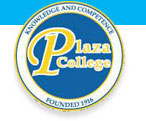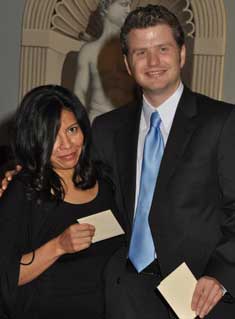Plaza College 2010 Writing Competition
WINNER: 1st place, Alumni Association
Question: How has studying the English language changed your life?
As I started writing this essay, suddenly I recalled my English lessons in 5th and 6th grades in Catholic school. How much did I learn? Honestly, I cannot tell. But at the time it never crossed my mind that my English writing skills would one day be far more proficient than that of Spanish, my native tongue. How has studying English changed my life? It has given me the opportunity to know today’s lingua franca, the satisfaction of serving as a translator when the need arises, and the chance to read some of the most famous, admired, laudable authors in the world of English literature in their own words.
The dictionary defines a lingua franca as “a hybrid language used for communication by speakers of different languages.” Before the 20th century, the universal language of communication in business and diplomacy, or lingua franca, was French. In our times the title can be mostly claimed by English. In a world where so many languages are spoken, knowing today’s lingua franca gives me the opportunity to interact and learn more about people from all over the world, and travel with confidence knowing that I will be able to communicate with them. Having studied French for a few years helps me appreciate the differences between these two languages and conclude, arguably, that English is easier to learn; French grammar and pronunciation are more difficult. And luckily for me, I immigrated to a country where learning and studying English was imperative. English now reigns, but for how long? And which language is more likely to replace it? I myself am inclined to believe that it never will be, and I take pride in being able to speak today’s lingua franca. English, may it reign forever!
It is very hard for many older Spanish-speaking people who immigrate to an English-speaking country to learn the language. I find it to be so satisfying when I can be of help to them by serving as their translator. It can be so overwhelming for these people to go to a hospital, bank, school or police precinct when they do not know the language and are uncertain if they will get the help they need. This is a country where English is the official language, and we all must know it, but learning a foreign language is not so easy when a person is 40 or 50 years old. My mother, who is 63, knows enough English to get by, but requires that either any of my sisters or I accompany her when she feels she might need a translator. This is such a simple act, but one that brings such a joy and satisfaction that cannot be expressed with words.
Reading in the original language is the only way to truly capture an author’s aim, or intended meaning. Would it have been the same reading Shelley, Hemingway or Wilde in Spanish or any other language that was not English, the author’s tongue? No, there is always something lost in translation. I remember reading Shelley’s poem “Ozymandias” and marveling at its simplicity and beauty! English poetry was my inspiration when I wrote my very first poem “I am like Icarus, soaring carelessly….” When I was little “The Happy Prince” was one of my favorite short stories, and what a surprise to discover that it was written by Oscar Wilde, one of my favorite authors. But, the same argument can be made for every single language spoken on our fascinating planet, and I lament not knowing each one of them. But this time let me take the chance to celebrate the fact that I can speak, write, and read English!
As an immigrant it was essential that I learned English in order to have as many opportunities as possible for a better life in a new place, but I came to this country as a teenager and it was only natural that I learned it. Now, it is with deep pleasure that I say that studying English has had a positive impact in different aspects of my life-from calmly reading Edgar Allan Poe in my room, to joyfully helping as a translator when the need arises, to enthusiastically making friends with people from all over the world.





